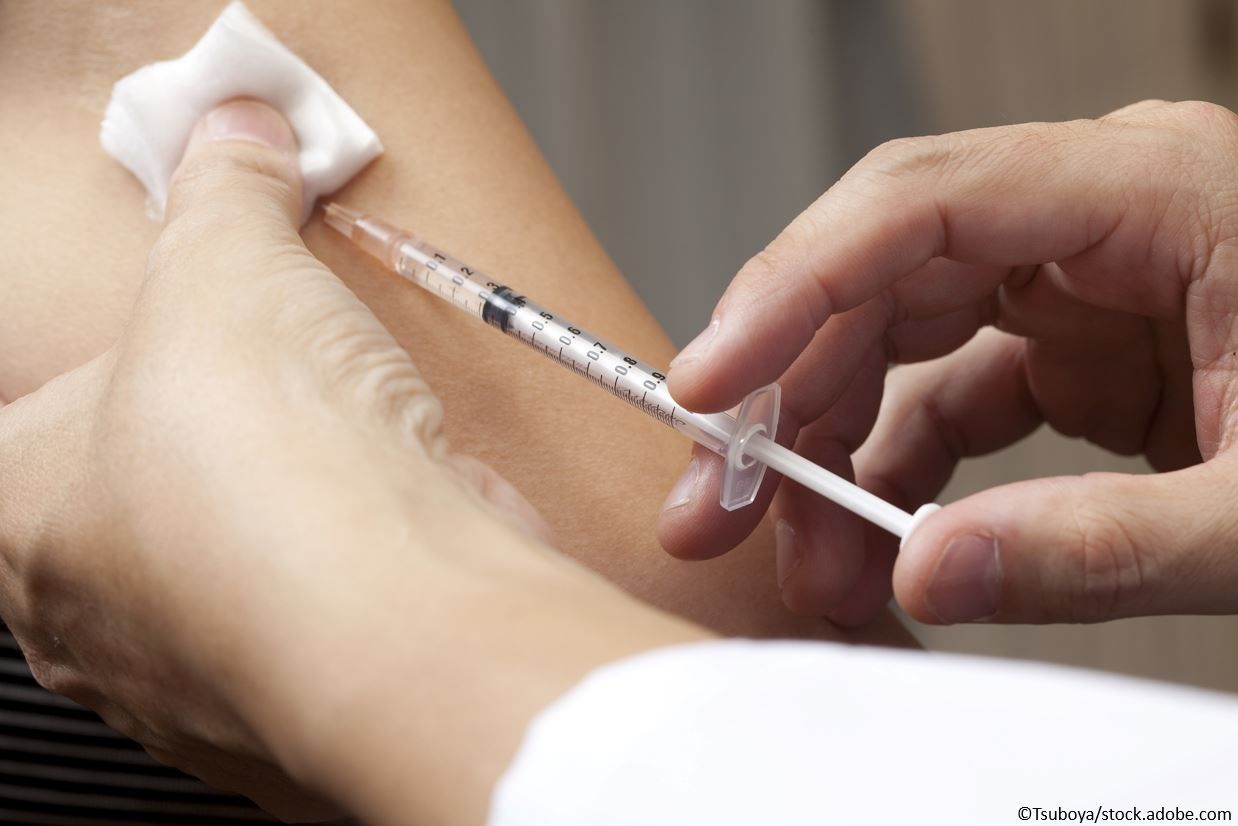- Clinical Technology
- Adult Immunization
- Hepatology
- Pediatric Immunization
- Screening
- Psychiatry
- Allergy
- Women's Health
- Cardiology
- Pediatrics
- Dermatology
- Endocrinology
- Pain Management
- Gastroenterology
- Infectious Disease
- Obesity Medicine
- Rheumatology
- Nephrology
- Neurology
- Pulmonology
J&J COVID-19 Single-dose Vaccine Candidate Shows Promise
Johnson & Johnson single-dose COVID-19 vaccine candidate induces durable immune response in participants aged 18 to 55 years; results support further development.
A single-dose coronavirus disease 2019 (COVID-19) vaccine candidate in development by Johnson & Johnson's Janssen Pharmaceutical Companies appears to provide a sustained response against the virus based on phase 1/2a trial data, according to a company press release.
Those interim results, published ahead of phase 3 findings anticipated later this month, demonstrated that the J&J vaccine (JNJ-78436735) provided an immune response that lasted for at least 71 days, the duration of time measured in this study in participants aged 18 to 55 years.

The interim analysis appeared this week online in the New England Journal of Medicine.
Data demonstrated that, after a single vaccination, neutralizing antibodies against COVID-19 were detected in more than 90% of study participants at day 29 and in 100% of participants aged 18 to 55 years at day 57. These neutralizing antibodies remained stable through day 71, the latest timepoint available in the ongoing study.
Data on durability of immune responses in trial participants aged >65 years will be available in late January and longer-term follow-up to one year is planned.
Top line data from the company's phase 3 ENSEMBLE trial of a single dose is due later this month, although this timing may change due to disease events. The ENSMBLE trial will evaluate the vaccine's safety and efficacy vs placebo in up to 60 000 adults aged 18 years and older and will include a significant proportion of adults aged >60 years.
The most frequent solicited adverse events (mild-to-moderate side effects typically associated with vaccinations) in the vaccine study arms were fatigue, headache, myalgia and injection site pain. Reactogenicity was lower in the older age group. The study also evaluated a two-dose regimen, in which reactogenicity was observed to be lower after the second vaccine dose.
